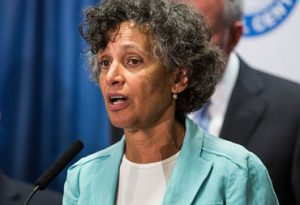Queens Hub
South Asian Council for Social Services celebrates second graduating class of sewing program for immigrant women
Governor Hochul Announces Groundbreaking Medicaid 1115 Waiver Amendment to Enhance New York State’s Health Care System
Ready to work: Asylum seekers on Staten Island complete training, earn free pair of work boots through local organization
COVID-19 Resources
The need to share information and stay up-to-date on available resources for our organizations and the communities we serve is extremely imperative while NYS is on PAUSE. Below is a list of helpful resources:
Social Determinants of Health (SDOH) Resources:
COVID-19 Guidelines:
Read MoreBassett, city's top doctor, to leave at the end of the month
 Mary Bassett, who as New York City’s top doctor has navigated epidemics and outbreaks, tried to narrow health inequities and, most recently, fielded questions over the city’s handling of lead exposure in children, announced Thursday she is leaving the de Blasio administration at the end of the month for a job at Harvard. Click here to read full article.
Mary Bassett, who as New York City’s top doctor has navigated epidemics and outbreaks, tried to narrow health inequities and, most recently, fielded questions over the city’s handling of lead exposure in children, announced Thursday she is leaving the de Blasio administration at the end of the month for a job at Harvard. Click here to read full article.




